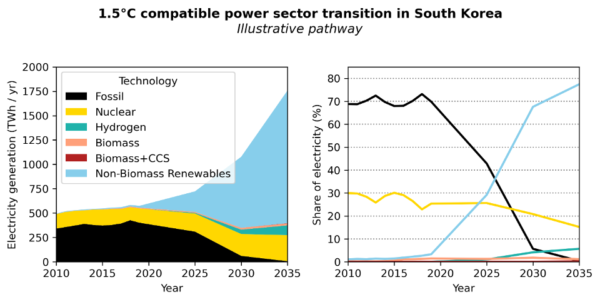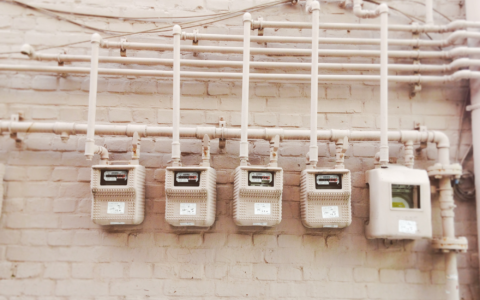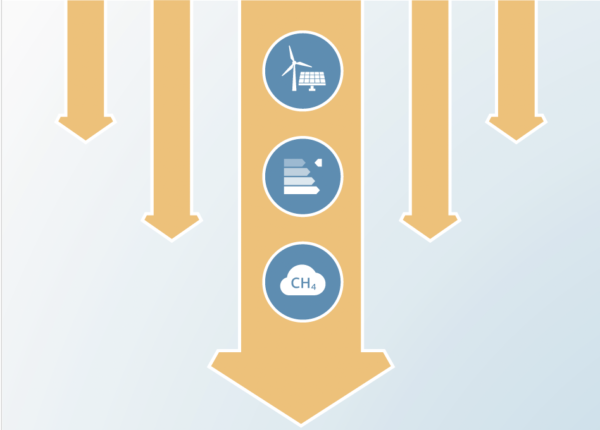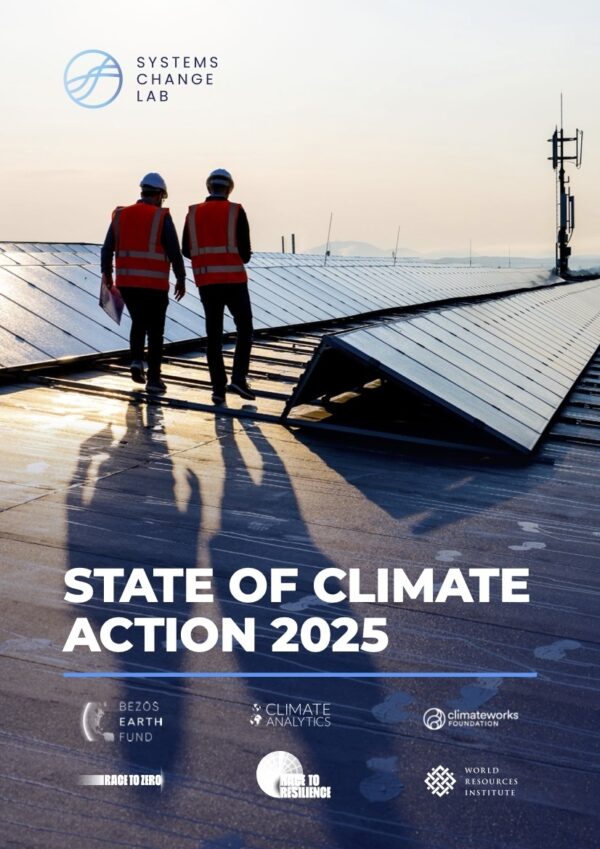No room for new gas in South Korea
Authors
Share

This report, produced in collaboration with Solutions for Our Climate, calculates a 1.5°C-aligned phase out date for fossil gas in the South Korean power sector. We find that South Korea should aim to phase out fossil gas from the power sector before 2035.
Clean electricity is a critical milestone on the road to net zero. Decarbonising the power sector, and then expanding the availability of clean electricity to decarbonise the buildings, industry, and transport sectors, is crucial for a successful energy transition. This will require phasing out unabated coal, oil and fossil gas from the power sector.
This report, produced in collaboration with Solutions for Our Climate, calculates a 1.5°C-aligned phase out date for fossil gas in the South Korean power sector. We find that South Korea should aim to phase out fossil gas from the power sector before 2035.
The South Korean power sector policy is a rapidly evolving space. The relative role of fossil fuels, nuclear and renewables in the future electricity system has changed noticeably over recent years in response to technological and geopolitical developments. However, throughout these changes, there has been a consistent vision that fossil gas will play a key role in the future power sector.
We find that if South Korea continues to rely on fossil gas in the power sector, it will jeopardise its climate goals, increase air pollution and exacerbate import dependency.
In the phase-out schedule determined in this report, South Korean power sector emissions fall to zero prior to 2035. Coal is phased out by 2029, and gas-fired power generation is rapidly reduced to zero prior to 2035.
This phase out is driven by three key factors:
- A rapid reduction in coal and fossil gas generation
- Large-scale deployment of wind and solar
- The use of green hydrogen to provide long-duration energy storage

Some pathways achieve almost total decarbonisation by 2030. An accelerated decarbonisation of the power sector in the 2020s could reduce the need for net-negative emissions in later decades, and help South Korea align with the principles of equity and fairness, which are at the heart of the Paris Agreement.
The pathways we assess show a slight increase in gas-fired power generation between 2022 and 2025. But we see that this demand can very likely be met by existing power plant capacity, meaning that there is virtually no scope for expanding the existing gas-fired fleet.
Expanding fossil gas generation capacity for the next two years before embarking on a rapid phase-out would lead to high levels of stranded assets and ultimately a more disruptive and costly energy transition.
Looking ahead to 2050, the South Korean government’s commitment to net zero emissions will require a complete phase out of unabated fossil gas across all sectors. The power sector will need to go first, with other sectors following.
While some have posed fossil gas as a bridging fuel on the path to a zero-emissions power sector, the evidence is clear: gas is fuelling the climate crisis and needs to be phased out prior to 2035 in South Korea.












